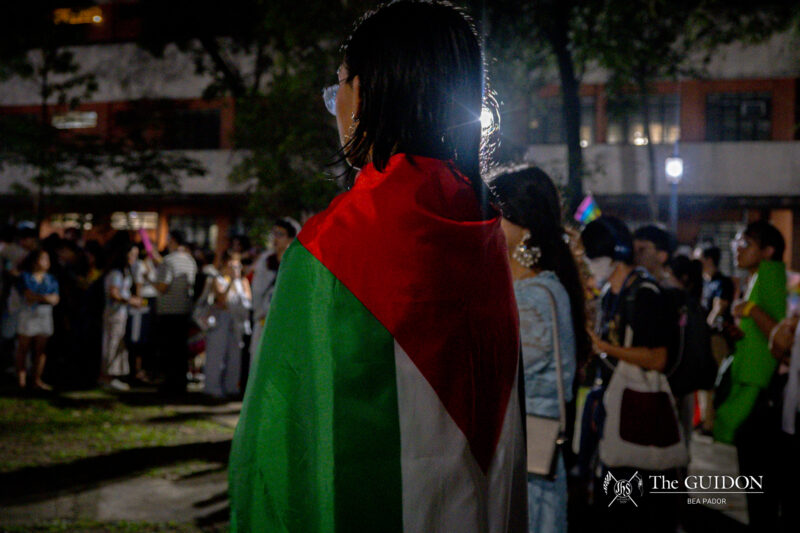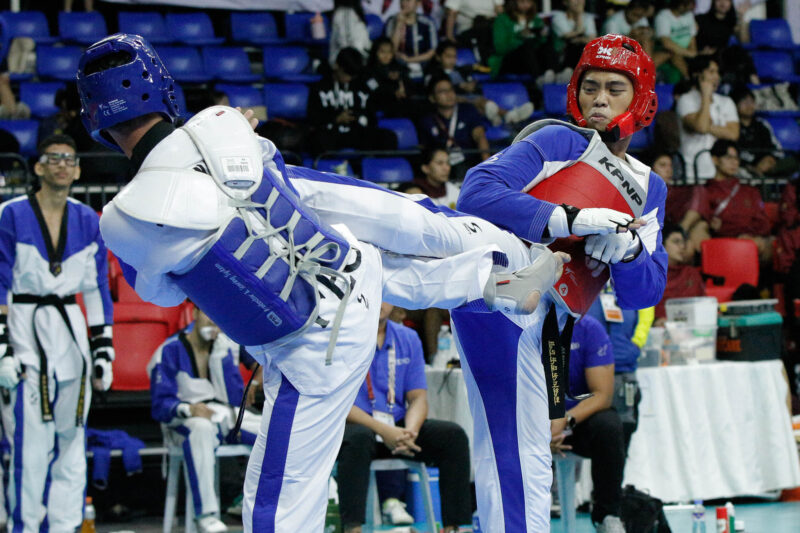“Judge me by my values, not my cursing,” argued President Rodrigo Duterte for what seems like the umpteenth time since he has been criticized for his foul mouth.
It is no secret that the current president has an inability to mince words. His impassioned speeches are more often than not flecked with various expletives that elicit a myriad of emotions: Confusion, disgust, horror, embarrassment, and possibly even amusement for a few. After over a year in office, his swearing has not by any means lessened nor slowed down, despite promises to try and do so.
While his vulgarities were initially a shock to many, their recurring appearances in the news is slowly affecting the audience in such a way that they have started to slowly become more and more desensitized with his crude word choices. Duterte’s potty mouth has now become one of his defining characteristics, especially in contrast to his predecessors who spoke in a rhetoric better classified as calculated and dignified.
This mainstreaming of profanity is further aided by film, music, and literature that continue to reflect the realities of its prevalence. Curse words are so potent in their ability to convey emotions with brevity, better than any other string of words could.
This is where the irony lies— despite their power, they remain controversial. While swearing has always been looked down upon, its normalization has become so widespread that one cannot help wondering what made it taboo to begin with.
Retracing taboo
The ubiquitous sounds of profanity have been uttered by people for ages. From the Roman period to the 21st century, swear words have ingrained themselves in the vocabulary of humankind.
Melissa Mohr, an expert on English literature and author of “Holy Sh*t: A Brief History of Swearing (2013),” stresses throughout her book the historical relationship between profanity, religion, and the human body.
In her book, Mohr reveals that the most explicit words in a society change with the times. The dirtiest words of the Roman age, much like the profanity of today, involved lewd acts and sensitive parts of the male and female bodies. When the Catholic Church gained prominence, however, profane words began to lean away from the body and started invoking the name of God instead.
Mohr continues to reveal that swear words changed anew with the rise of larger cities. Because the amount of privacy dwindled in cramped towns, private acts weren’t all that private anymore. Thus, the taboo surrounding private deeds declined as well. Society here was playing a vital role in the dictating of what was taboo, and what was not.
The use of profanity in literature, on the other hand, has been more veiled. A study has shown that the use of swear words in American books is 28 times more common now than it was back in the 1950s. Shockingly, the word “motherfucker” is now 678 times more common in books than it was about 60 years ago. For the longest time, swearing was unacceptable in literature. Today, however, it is a common sight.
The renowned William Shakespeare avoided the use of swearing. Among the Great Bard’s roster of talents is his ability to creatively mask profanities through euphemisms, where insults and sexual references were hidden in sugar-coated phrases. These were often difficult to distinguish as it entails familiarity with both the context of the work as well as knowledge of Elizabethan slang.
Francis Sollano, an English instructor, attributes this traditional avoidance of profanity to the notion of high art, which dictates “a certain decorum.” He explains that “writers today want to capture what’s really happening in society,” hence, writers’ recent apathy towards sanitizing their work.
Publishing profanity
In modern times, however, cultural observers note that profanity has become a domain of class conflict. An Odyssey article about rap music argues that foul-mouthedness is a function of a less-privileged upbringing. Artists raised in “profane” environments are more inclined to swear than others, because “profanity is how they get across” whatever message they are trying to relay. The article then encourages listeners to read between the lines, instead of writing off the entire form as “bad.”
The same sentiment— that the publication of profanity is not inherently bad— has been echoed by scholars who champion the democratization of profanity. In a now infamous New York Times column, linguist Jesse Sheidlower laments the media’s “frustrating” avoidance of expletives. He discusses the use of “censorship-by-dashes.” For instance, “f—” for “fuck”—and then pokes lighthearted fun at the “coy acrobatics” editors have employed to keep their pages profanity-free. The column ends with an unequivocal call: “It’s time to print exactly what we mean.”
In the same vein, journalist Robert Lane Greene of The Economist offers a convincing argument: Why would a paper intended for adults ban swear words in its pages? To protect children?
However, it should be noted that these authors do not advocate for profanity per se. Rather, they argue for the use of foul language if pertinent in a news piece, or if it is germane to an artistic work.
Still, the upshot of these efforts is that profanity becomes more widely printed and accepted, whatever the scholars’ intentions may be. In combination with a vulgar president and a swearing-laden pop culture, it becomes plainly apparent why profanity has become so pervasive today.
A way with words
As foul words become part and parcel of everyday language, they have also lost their ability to jar audiences. Pervasiveness in media paves the way for greater real life use: If someone as powerful as the president can dole out expletives in his State of the Nation address, then swearing in everyday contexts appears that much easier to excuse.
The clout of political leaders who employ the usage of profanity only amplifies its acceptability. Nikki B. Carsi Cruz, an Interdisciplinary Studies lecturer, speaks of President Duterte’s brazenness in that it imbues him with a “certain authenticity and peculiar transparency.” While we have often been encouraged to think before speaking from a very early age, Duterte says what he wants to say.
Swearing reminds us of “notions of respectability [which] tell us what we should or should not do, and this reeks of a kind of hierarchy,” says Carsi Cruz. “The well-mannered are on top, and those who do not subscribe to notions of respectability and are less respectable are at the bottom.” This is reminiscent of the heritage of imperialism and colonialism that pushed for a civilized society.
This puts us in a tough place as to where to posit ourselves in determining our very own usage of swear words. The incorporation of these words into our lexicon seem to rebrand the meaning of political correctness, which is now a gray area. Regardless of what authority figures may dictate, it is up to our own critical eyes and ears to determine the proper forums and contexts where words like these are acceptable.
What do you think about this story? Send your comments and suggestions here: tgdn.co/2ZqqodZ







